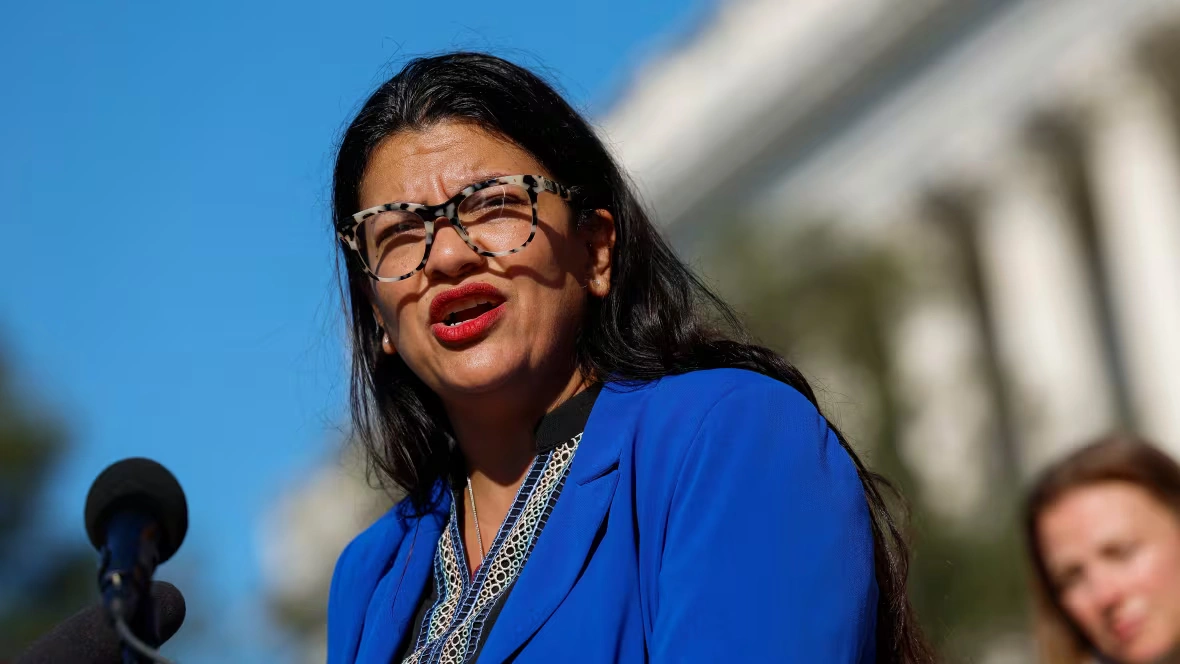Rashida Tlaib, Military Aid, and the Boundaries of Foreign Policy
US Representative Rashida Tlaib has recently made a controversial request that the House of Representatives think about stopping military funding to Pakistan if General Asim Munir stays in charge of the country’s army. This call, which is based on complaints about Pakistan’s political situation and supposed human rights issues, has led to a lot of discussion on whether these kinds of foreign policy demands are right and what they might mean. Tlaib’s plan is based on concerns that some members of the Pakistani diaspora have raised, but it also raises big questions about what the US should do in the internal affairs of other countries.
Sovereignty in the Constitution vs. Outside Demands
Pakistan’s military chiefs are chosen by the country’s own constitutional processes, just as in any other country. The procedure that led to General Asim Munir being named Chief of Army Staff involved both civilian scrutiny and executive authority. People from outside the country, including foreign politicians, have no say in these decisions. Rep. Tlaib’s suggestion to tie US funding to the state of Pakistan’s military leadership is a huge overreach and shows a lack of respect for Pakistan’s democratic and constitutional rules.
No country likes it when outside forces try to influence who gets to lead it, especially when those forces are going for a major national institution. These kinds of ideas are not only diplomatically wrong, but they also show a hazardous break from the values of state sovereignty and mutual respect that are the basis of international relations.
Using Aid as a Weapon and Hurting Diplomacy
When used to enforce defined principles like human rights, transparency, and non-proliferation, aid conditionality is a valid weapon of foreign policy if the policy frameworks are consistent. But using military aid as a weapon based on who oversees certain parts of another government is a very bad idea. When conditionality is based on personality instead of policy, it hurts the aid’s goal and the donor country’s credibility.
Rep. Tlaib’s framing of US aid in terms of General Munir’s attitude might set a bad example that would let political biases and diaspora-driven pressure campaigns affect US foreign policy instead of effective diplomacy. This method not only breaks down trust, but it also risks making US foreign aid political in ways that go against American diplomatic traditions and long-standing promises to work with other countries.
A Slippery Slope of Political Engineering
People are becoming more worried that Tlaib’s plan doesn’t come from a deep understanding of Pakistan’s complicated political situation but instead comes from partisan lobbying by people who favour the Pakistan Tehreek-e-Insaf (PTI) and its sympathizers overseas. If you make military support depend on getting rid of a certain military officer, especially if there are no confirmed infractions or policy changes, you are allowing foreign political engineering. This isn’t about protecting democracy; it’s about picking sides in a fight that should be settled by the people and institutions of Pakistan.
Washington needs to be careful not to let its legislative platforms become places where foreign political factions may talk to each other. These kinds of acts could not only hurt the US’s reputation in global diplomacy, but they could also make people in nations where these laws are in place even more anti-American.
The Danger of Foreign Policy Driven by the Diaspora
Rep. Tlaib’s work with groups like PAKPAC (the Pakistani American Political Action Committee) shows how hard she is trying to connect with people in her community. But there is a fine line between being involved in the community and functioning as a political proxy. When US senators repeat the same things that diaspora groups with a stake in regime change or political power back home say, it raises questions about the objectivity of Congressional monitoring.
Foreign policy should be based on what is best for the country, not on emotionally charged stories or partisan lobbying. Giving these choices to expatriate organizations with certain political views, especially those who want to delegitimize Pakistan’s constitutional institutions, could hurt serious and fair diplomacy.
Congressional Responsibility and How the World Sees Us
When it comes to foreign policy, US lawmakers must always be fair and honest. People think that members of Congress are working for certain political groups in another country. This hurts relations between the two countries and makes people question the fairness of American democracy.
No US official should act as a stand-in for political interests in other countries. People will say that the US is interfering in other countries’ affairs for political or ideological reasons, and this kind of behaviour promotes stories that say Washington backs regime change operations while pretending to promote democracy.
Twisted Stories and Long-Term Effects
The political situation in Pakistan is complex, and using diaspora-driven stories to oversimplify it changes the facts on the ground. These stories, which are often exaggerated and taken out of context, might lead policymakers astray and cause them to react in ways that are too extreme. For instance, saying that the military’s role under General Munir is the only thing that is causing Pakistan to move away from democracy ignores the country’s larger problems with institutions, the economy, and geopolitics.
The US might hurt its reputation and make partnerships weaker in the long run by depending on these one-sided portrayals. Pakistan is an important country in South Asia that is important to the US’s interests in Afghanistan, China, counterterrorism, and keeping the area stable. Actions that make Islamabad feel like an outsider, especially its main institutions, can seriously harm decades of strategic collaboration.
Rep. Rashida Tlaib may be responding to the feelings of her constituents, but her plea to stop giving military aid to Pakistan because General Munir is still in charge is wrong. It mixes personal political beliefs with official policy, goes against diplomatic conventions, and could hurt the honesty of US foreign policy. Instead of threatening aid over decisions about who should lead Pakistan, the US should keep talking to Pakistan in a consistent, principled, and courteous way that supports the growth of democracy without becoming involved in politics or forcing people to do things.








